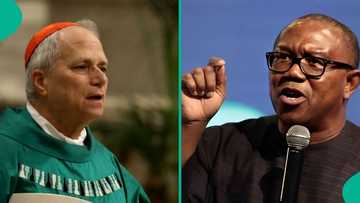Why Do Popes Change Names and What Do the Name Names Mean?
- Cardinal Robert Prevost, now Pope Leo XIV, is the first American pope and a reformer known for his work in Peru
- The tradition of popes choosing new names has evolved over centuries, with names often reflecting their mission or honoring previous popes or saints
- The choice of Pope Leo XIV may reflect a commitment to social issues, continuing the legacy of Pope Leo XIII, known for his advocacy of peace
The election of a new pope is often accompanied by a unique tradition — the selection of a papal name.
This tradition, which dates back centuries, allows the newly elected pope to choose a name that reflects his vision, mission, or influences in the Catholic Church.
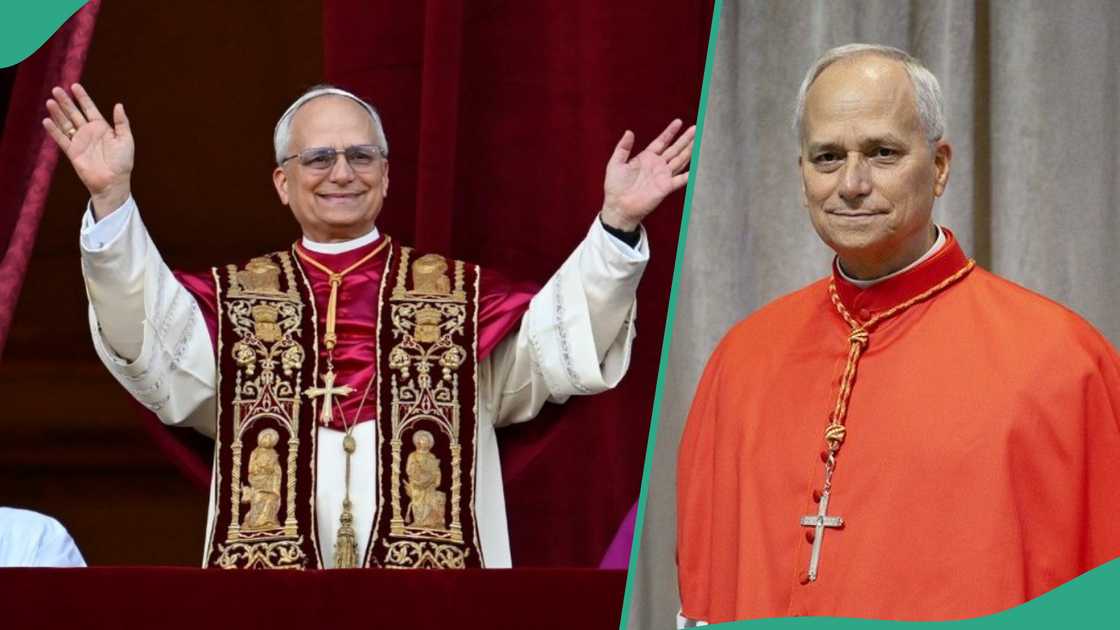
Source: Twitter
Once elected as the Supreme Pontiff, the pope immediately chooses a new name. This is done before any other activities are carried out, and it is officially announced by the Cardinal Protodeacon after the famous declaration “Habemus Papam,” followed by the chosen papal name in Latin.
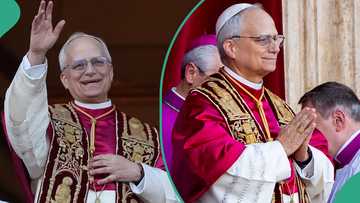
Read also
CAN congratulates Catholic Church on election of Pope Leo XIV, “New era of peace and renewal”
Historically, popes used their birth names for over 500 years, but this changed as they began adopting symbolic names.
The shift to symbolic names allowed popes to either simplify their names or choose names that honoured previous pontiffs. By selecting a name linked to their predecessors, popes signal a desire to continue their legacy and reflect values or priorities associated with those figures.
For example, Pope Francis chose his name to honour St. Francis of Assisi, reflecting his commitment to humility and care for the poor, inspired by his Brazilian friend Cardinal Claudio Hummes.
Why did the new pope choose Leo XIV?
Pope Leo XIV, the newly elected pontiff, has not yet publicly stated why he chose this particular name.
However, there is a rich history associated with the name “Leo,” as many popes have taken this name in the past, including Pope Leo XIII, known for his emphasis on social issues.
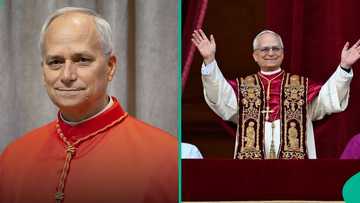
Read also
Pope Leo XIV: Vatican Shares Insight Behind New Pontiff's Name, Lists His Upcoming Activities
According to Dennis Doyle, a theologian and professor emeritus of religious studies at the University of Dayton, the choice of a name is significant because it represents the pope’s vision and direction for his papacy.
“The first thing you look for is which pope has used that name before? That will signify something about the direction the new pope wants to take,” Doyle explained.
Rev. Fr. Ben Onyemechalu, a priest in the Catholic Archdiocese of Abuja, told BBC News Pidgin that the name change is symbolic of a new spiritual mission, often reflecting a desire to honour a specific saint or pope.
“They often choose names to honour a particular saint of interest or a past pope whose legacy they wish to follow,” he added.
For Pope Leo XIV, the choice of the name could signal a strong stance against oppressive political forces, with a focus on advocating for the marginalised and addressing social issues.
The significance of the name Leo in the papacy
The name “Leo” holds deep meaning within the Catholic Church. It is associated with strong leadership, peace, and social commitment.
Natalia Imperatori-Lee, the chairman of religious studies at Manhattan University, pointed out that the name Leo signifies a deep commitment to social issues.
The name has been used by 13 previous popes, with Pope Leo I, known as St. Leo the Great, being the most notable. He served as pontiff from 440 to 461 AD and is remembered for his dedication to peace. One of the most famous legends associated with Pope Leo I is his meeting with Attila the Hun in 452 AD.
During the meeting, Saints Peter and Paul are said to have appeared to Leo, causing Attila to retreat and abandon his plans to invade Italy.
Pope Leo XIII, who served from 1878 to 1903, is particularly remembered for his commitment to social justice and his encyclicals on the condition of workers, including the famous Rerum Novarum.
His advocacy for peace and justice set a precedent for future pontiffs, and the choice of the name Leo XIV may be seen as a continuation of this important legacy.
What does the choice of Leo XIV signify?
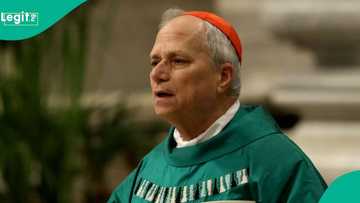
Read also
Nigerians massively react as American cardinal becomes new Pope: "It will never be a black"
The selection of the name Leo XIV by Cardinal Robert Prevost as Pope Leo XIV can be seen as a deliberate move to continue the legacy of Pope Leo XIII, known for his advocacy for social justice, peace, and the dignity of the working class.
As the first American pope, Prevost’s decision to choose this name also signals his intent to address global issues through a lens of compassion and social responsibility.
His past work as a missionary in Peru and his dedication to marginalised communities may align with the values associated with the name Leo, particularly in advocating for the voiceless.
Pope Leo XIV’s papacy will likely focus on addressing contemporary social issues, drawing inspiration from past popes who championed peace, equality, and justice for all.
The road ahead for Pope Leo XIV
With the election of Pope Leo XIV, the Catholic Church is now poised to address the complex social, political, and religious challenges of the modern world. His commitment to continuing the legacy of his predecessors, particularly Pope Leo XIII, suggests that his papacy will prioritise social justice, peace, and addressing the needs of the disadvantaged.
As Pope Leo XIV embarks on his papacy, the Catholic Church, with its global following of 1.4 billion members, will be watching closely to see how he navigates the complexities of contemporary issues while staying true to the values and mission of the Church.
Source: Legit.ng

